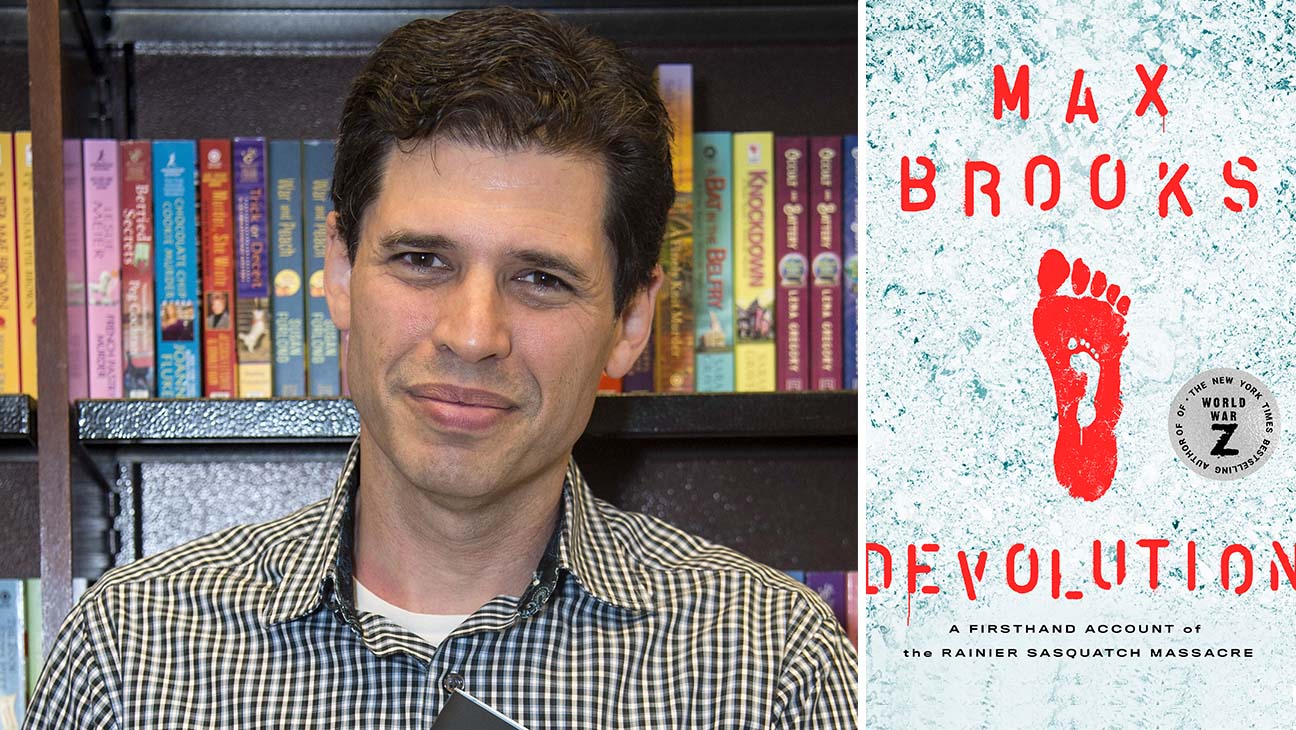
Devolution
Max Brooks
Penguin Random House
Synopsis – As the ash and chaos from Mount Rainier’s eruption swirled and finally settled, the story of the Greenloop massacre has passed unnoticed, unexamined . . . until now. The journals of resident Kate Holland, recovered from the town’s bloody wreckage, capture a tale too harrowing—and too earth-shattering in its implications—to be forgotten. In these pages, Max Brooks brings Kate’s extraordinary account to light for the first time, faithfully reproducing her words alongside his own extensive investigations into the massacre and the legendary beasts behind it. Kate’s is a tale of unexpected strength and resilience, of humanity’s defiance in the face of a terrible predator’s gaze, and, inevitably, of savagery and death.
Devolution has all the markings of Brooks’ previous book World War Z. The story is told via interviews and journal entries. Both serve to paint the picture of the Greenloop community and its residents. What makes the book interesting is how Brooks is able to capture many of the contradictions between our modern society and the natural war. The residents of Greenloop want to live closer to nature. They want to live in an area that is environmentally friendly. They want to be close to the nature they covet, but their desire to continue technology centered existence is the biggest problem they face when cut off from the rest of the world.

The devolution comes from being both cut off with scarce resources and the looming threat of creatures moving towards their town looking for food. It’s both entertaining and troubling to read about these characters struggling to survive with no practical idea of how to do so. They can’t make repairs because they have no tools. They can’t hunt or defend themselves because they have no weapons. Even the vegans never thought to plant a garden because their food was being delivered. Even when a group of Sasquatch appear, they debate it as if they are in the middle of a nature documentary rather than seeing the obvious threat they present.
The story is mostly told through Kate’s journals and her recollection and point of view mirrors our modern sensibilities so much that it is hard to feel sympathy for her or anyone else in the village. It’s only when they begin to see the reality of their situation (which only comes after a series of murders by the Sasquatch) that you begin to root for them to a degree. Unfortunately, their arrogance and lack of common sense in the face of nature itself makes the reader oftentimes side with the beasts rather than the humans. Those moments have the feel of watching a monster movie and rooting for the most insufferable human characters to be the next victim.
Devolution is a fun, sometimes funny and often infuriating look at how our modern society fails in the face of nature and how shedding our pretenses in the face of the unknown might be the only way to survive.






